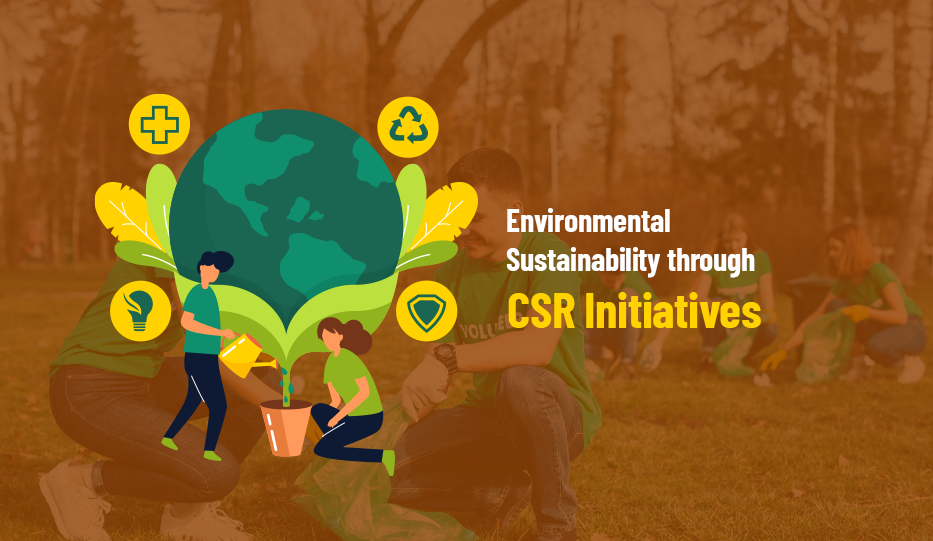Promoting Positive Change in India
Corporate Social Responsibility (CSR) is a concept that refers to the responsibility of businesses to positively impact society and the environment in which they operate. It involves a commitment to conduct business in an ethical and sustainable manner and to contribute to the development of the communities in which the business operates.
In India, the concept of CSR was introduced in the Companies Act, 2013. Under the law, companies with a net worth of Rs. 500 crore or more, or a turnover of Rs. 1,000 crore or more, or a net profit of Rs. 5 crore or more in a financial year are required to spend at least 2% of their average net profits over the preceding three years on CSR activities.
CSR initiatives in India cover a wide range of areas, including education, healthcare, sanitation, women’s empowerment, environmental sustainability, and more. The government has also identified certain key sectors, such as education, healthcare, and environmental sustainability, as priority areas for CSR investment.
In terms of investment under the environment sector, companies in India have been increasingly focusing on initiatives that promote sustainability and conservation. These initiatives may include measures to reduce greenhouse gas emissions, conserve natural resources, promote renewable energy, and improve waste management practices.
Some examples of CSR initiatives in the environmental sector in India include the following:
- Tata Steel’s initiative to promote sustainable mining practices and reduce carbon emissions
- Hindustan Unilever’s initiative to reduce its environmental footprint and promote sustainable living through its “Sustainable Living Plan”
- Mahindra & Mahindra’s initiative to promote sustainable agriculture and reduce water consumption in agriculture
- ITC’s initiative to promote sustainable forestry and reduce the environmental impact of its paper and packaging operations
Overall, CSR activities in India have the potential to make a significant impact on society and the environment. Through responsible investment and sustainable business practices, companies can contribute to the development of communities and help create a more sustainable future for all.
Under the environment sector, several companies in India have undertaken CSR projects focusing on various aspects of environmental sustainability, such as renewable energy, waste management, and biodiversity conservation.
Some examples of CSR initiatives under the solid waste management sector include:
- Waste segregation and recycling: Companies may invest in programs that promote waste segregation and recycling in their communities. This can include providing recycling bins and educational materials to households, and partnering with local recycling facilities to process the collected waste.
- Clean-up drives: Companies may organize clean-up drives to remove litter and debris from public spaces, such as parks, beaches, and waterways. These events can help raise awareness about the negative impacts of waste on the environment and promote community involvement in waste management.
- Composting initiatives: Companies may support the establishment of community composting facilities, where organic waste can be processed into nutrient-rich compost that can be used for gardening and agriculture. This can help reduce the amount of waste sent to landfills and promote sustainable agricultural practices.
- Waste-to-energy projects: Companies may invest in waste-to-energy technologies, such as anaerobic digestion or incineration, that can generate renewable energy from waste. This can help reduce greenhouse gas emissions and provide a sustainable source of energy.
Some companies that are involved in CSR projects under the solid waste management sector include:
- Coca-Cola: The Coca-Cola Company has a global initiative called “World Without Waste,” which aims to collect and recycle the equivalent of 100% of its packaging by 2030. The company has invested in waste collection and recycling programs in many countries around the world, and has partnered with local governments and NGOs to promote sustainable waste management practices.
- Unilever: Unilever has a sustainability program called “Clean Future,” which aims to eliminate the use of fossil fuel-based chemicals in its cleaning and laundry products by 2030. The company has also invested in waste reduction and recycling programs, and has committed to using 25% recycled plastic in its packaging by 2025.
- Procter & Gamble: Procter & Gamble has a global sustainability program called “Ambition 2030,” which includes a goal to reduce its environmental footprint by 50%. The company has invested in waste reduction and recycling initiatives, and has committed to using 100% recyclable or reusable packaging by 2030.
- Waste Management Inc.: Waste Management is a waste management company that provides collection, recycling, and disposal services to businesses and communities in North America. The company has invested in waste-to-energy and recycling technologies, and has a goal to divert 50% of waste from landfills by 2038.
